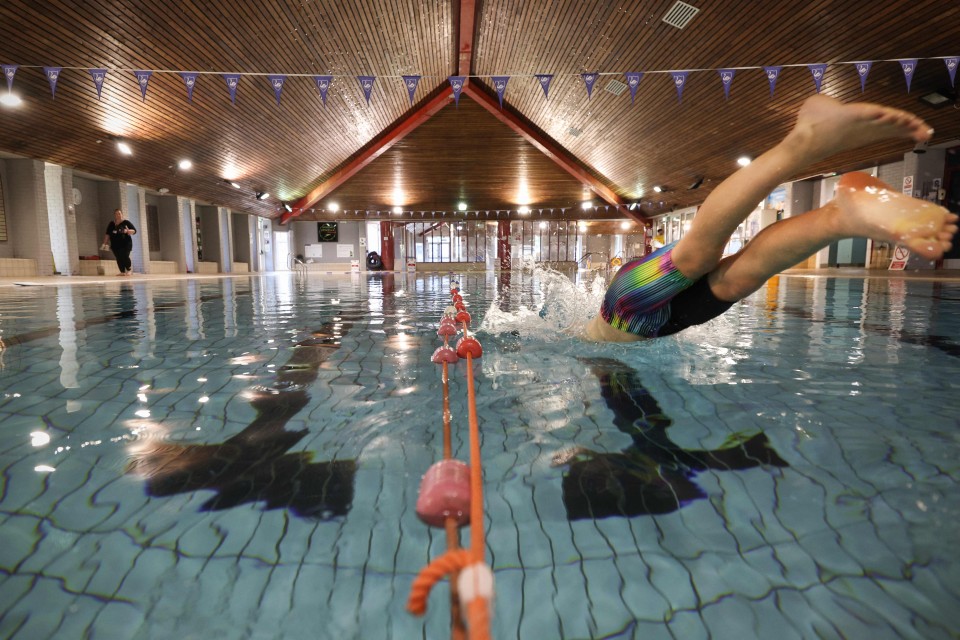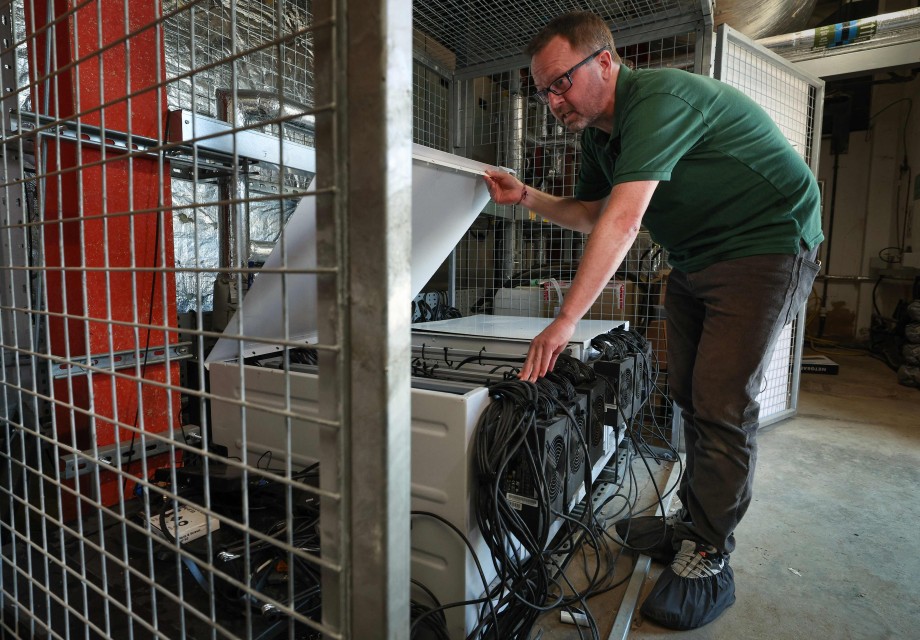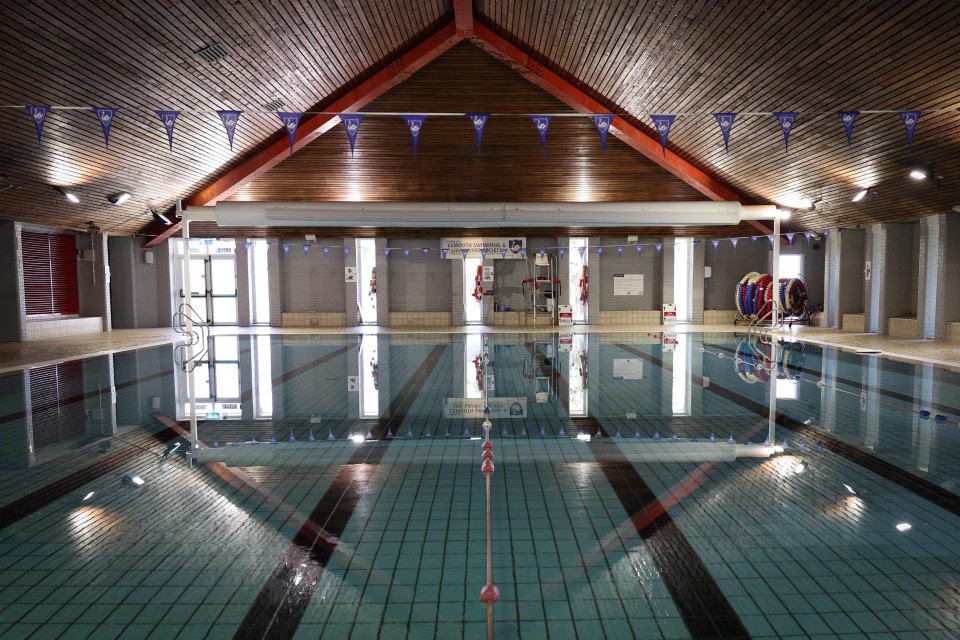
By Anastasia CLARK
Agence France-Presse
EXMOUTH, United Kingdom, June 23, 2023 (AFP) — A leisure centre in Exmouth, southwest England, is using a small data centre to heat its indoor swimming pool, trialling an innovative solution that reduces its energy bills and carbon footprint.
An on-site installation captures heat generated by a bank of computers, bringing the 25-metre swimming pool to the required temperature around 65 percent of the time, cutting reliance on gas boilers.
Deep Green, the UK company behind the project, gives the heat away for free and covers its own electricity costs but charges clients to use its computers that can power machine learning and artificial intelligence.
“It’s a symbiotic relationship. We get our computers cooled for free,” Deep Green CEO Mark Bjornsgaard told AFP at the Exmouth Leisure Centre, their flagship site.
“The pool is doing an equally big favour as we are.”
Bjornsgaard lifted the lid of a white dishwasher-sized box, revealing computers immersed in a mineral oil that captures the excess heat.
The oil then flows into a heat exchanger where it meets cold water from the pool.
“Normal data centres are simply venting that heat. They use an enormous amount of water to evaporate the heat away,” Bjornsgaard said, adding that 99 percent of this heat is wasted into the atmosphere.
According to Bjornsgaard, around half of the cost of running a data centre goes towards keeping the computers cool.
“We don’t have those costs. So from an environmental and sustainable point of view, it’s a very good thing to do,” he said.

– ‘Significant savings’ –
Peter Gilpin, CEO of LED Community Leisure, which runs the swimming pool, said the deployment of the Deep Green technology has been “very timely” after Russia’s invasion of Ukraine last year sent energy prices soaring.
Utilities usually account for about a third of the total costs of running the leisure center and the swimming pool’s annual gas bill had more than tripled to nearly £80,000 ($102,000) before they installed the data center in March, he added.
“We have been hit quite hard by that rising cost of gas through the winter but hopefully next winter a very large proportion of our heating costs will come through the Deep Green technology,” Gilpin said.
While it’s early to judge results over a long period of time, they are seeing “reductions in our gas consumption already” and “significant savings” even with energy costs coming down in recent months.
He added that “not only it reduces our energy costs and our gas consumption, which was the primary benefit but… we reduce our carbon footprint”.
Gilpin said they are “proud” to have been the first site to deploy Deep Green’s technology and are now looking into installing it at the other swimming pools that they run.

But now they might have competition.
Bjornsgaard said they have seen “demand go through the roof”, with thousands of potential sites across Europe wanting to deploy their technology, especially swimming pools and district heating systems.
At the same time more and more companies are looking to use Deep Green computers because its “environmentally friendly” and “way cheaper than their normal cloud provider”, Bjornsgaard said.
“But also we’re doing some social good, right? We’re heating a swimming pool and helping swimming pools to stay open,” he added.







